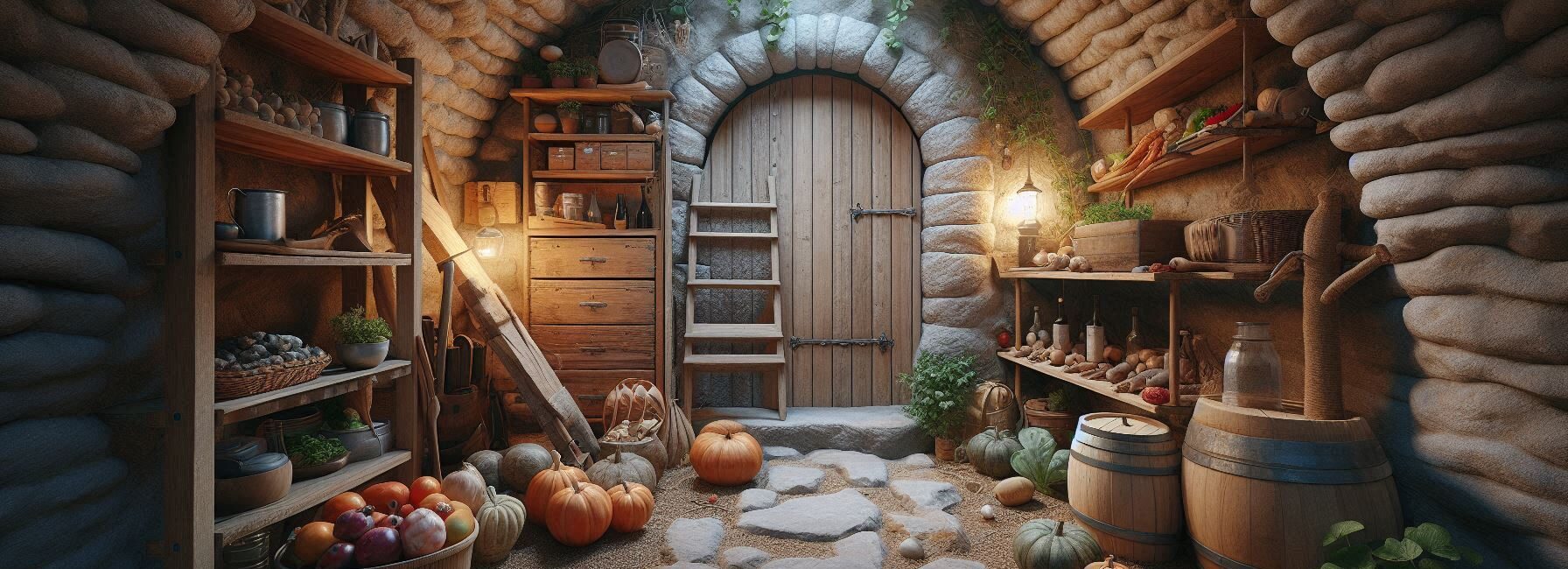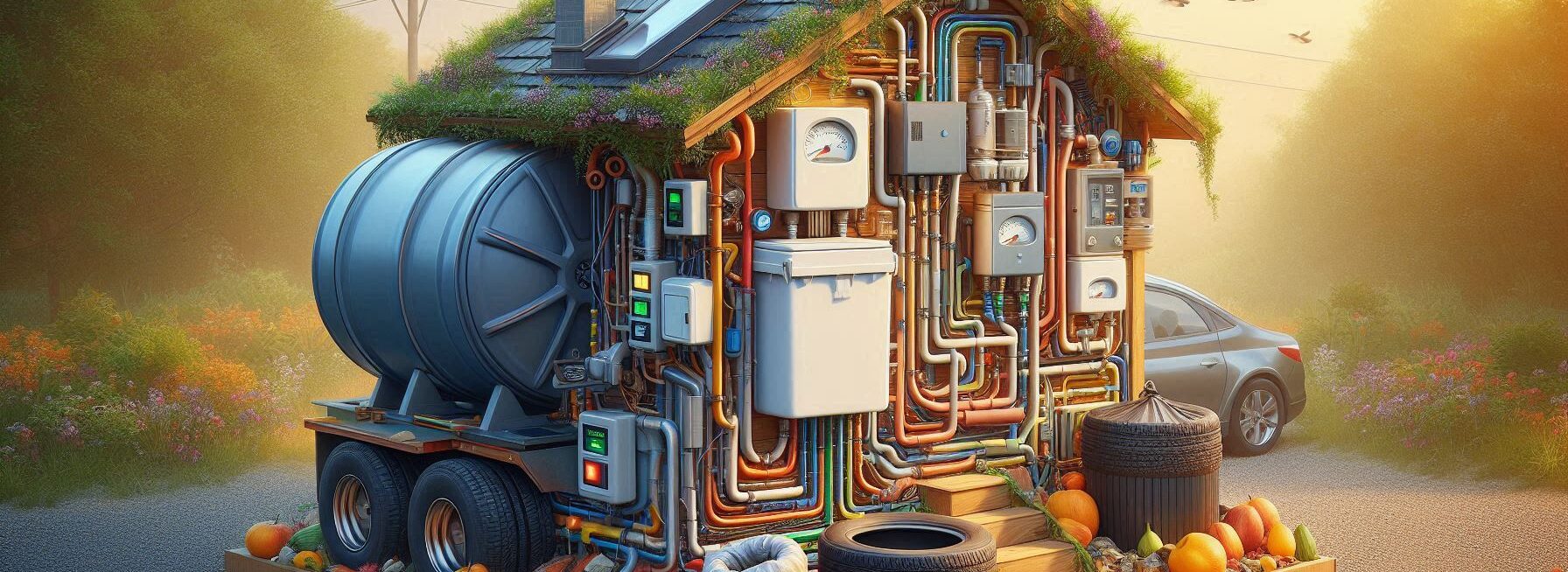Last Updated on November 1, 2025 by Kevin Collier
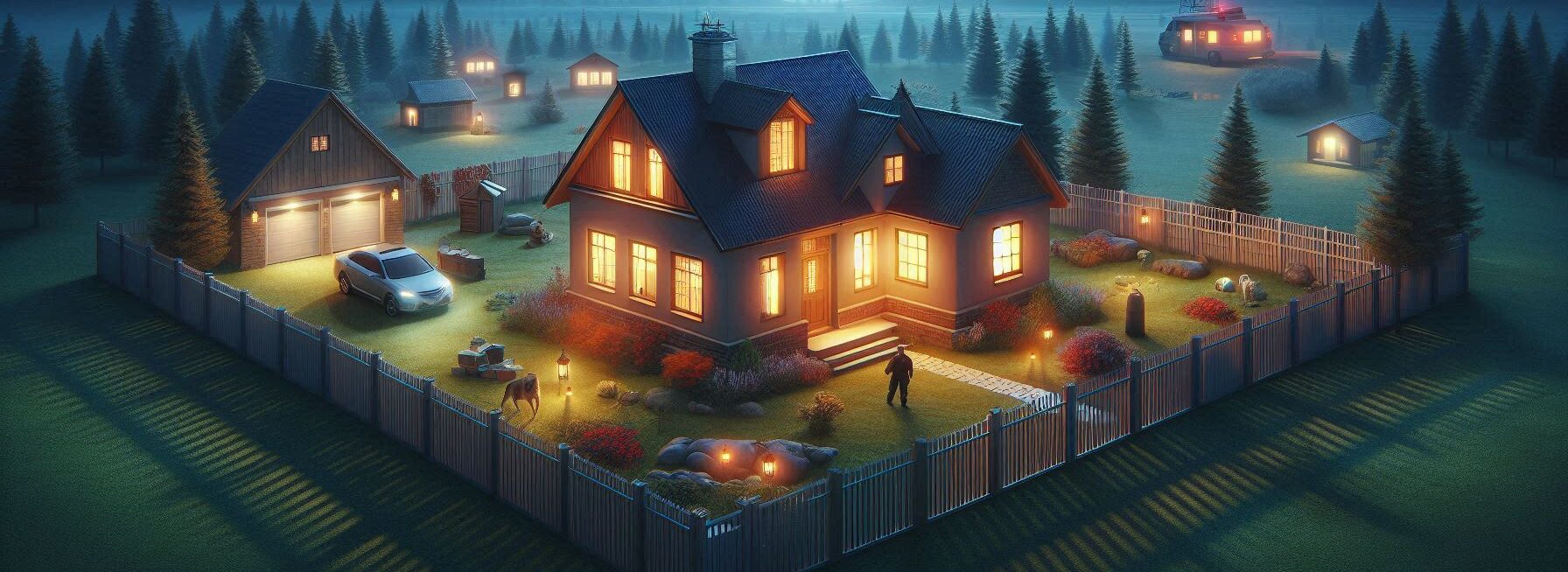
Top Takeaways and Key Concepts
Install motion-sensor lights along pathways and near entry points to deter intruders.
Use thorny or dense shrubs like pyracantha and berberis as natural barriers.
Keep trees and bushes trimmed to eliminate hiding spots near windows.
Clearly mark property boundaries with signs and fences to deter trespassers.
Secure outbuildings and gates with strong locks and chains to prevent unauthorized access.
Living on a homestead really feels like being in a reality show, right? Chickens clucking around, and you’ve got your garden growing. Then there’s that sneaky raccoon. Seriously, they can be like little bandits in the night!
Please Note: This post may contain affiliate links. If you click one of them, we may receive a commission at no extra cost to you. As an Amazon Associate, I earn from qualifying purchases.
I love my cozy homestead, but keeping it safe is super serious. You can’t just leave things to chance. Trust me.
Think about starting with good fences. A strong fence keeps out the raccoons…and maybe those neighbor kids who think it’s a petting zoo. If your fence looks nice but works well, that’s a win-win.
Get some motion lights too. They’re great! They light up when something moves. With a little surprise light, you might scare off uninvited guests. Just see the raccoon’s little eyes flash and run away. It’s like having nighttime superheroes protecting your stuff.
You can also put up some signs. A simple “Beware of Dog” could work wonders. Even if you don’t have a dog, it makes people think twice! A little creativity goes far.
Making your property feel lived-in helps, too. If you’re out there all the time, it shows you care. A tidy yard does wonders. It looks friendly, and that helps keep trouble away. When things look loved, people notice.
Cameras can be another easy step. They don’t have to be fancy. Just something to see what’s going on. Plus, watching the chickens from a comfy chair is a bonus! It’s like getting a front-row seat to your own little show.
With all these simple steps, you won’t need to feel like a paranoid superhero. Just someone who loves their homestead and wants to keep it safe. Each little measure makes a big difference.
*** Shop for Survival Gear - Tools - Kits ***
Survival Gear - Bags and Backpacks - Knives - Boots/Footwear - Communication
Outdoor Cooking - Gloves - Hydration - Dry Boxes - Water Filtration Systems
Tents - Sleeping Bags - First Aid Kits - Multi-Tools - Flashlights - Fire Starters
Navigation - Survival Food - Night Vision - Headlamps - Stun Guns - Binoculars
Enjoy your homestead adventure and keep it secure. Embrace the quirks, and laugh at the funny moments—like that raccoon trying to steal your leftovers! It’s all part of the charm, right?
Assessing Your Property
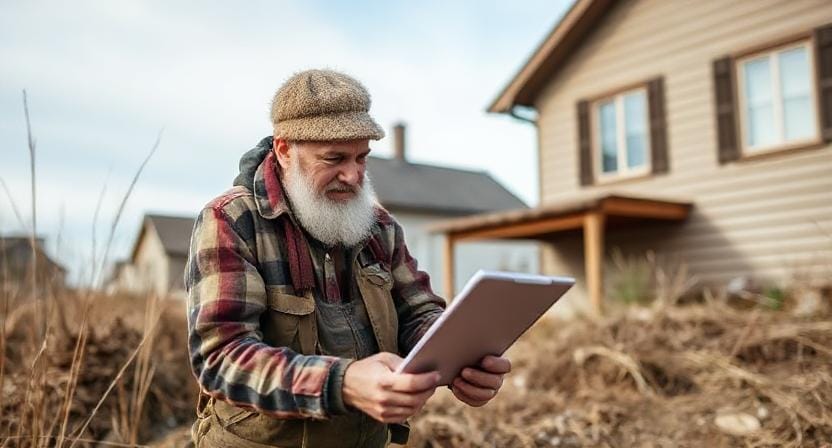
First, look around your home carefully. You could believe everything appears great until you see that the door to the ancient barn swings open like something out of a horror movie. For real! Have you ever heard those doors rattle at night? It's as if they're telling secrets about all the animals that are outside.
Find the weak places first. Are there places where someone could go in without being seen?
It's possible that the shrubs that have grown too big are making it easy for intruders to hide, or maybe it's just the deer in the area hunting for a quick feast. A well-kept yard not only makes your property seem great, but it also keeps people who don't belong there away.
Think about what things on your property are most important to you as well. If you have tools that are worth their weight in gold or heirloom seeds that would make any gardener cry with joy, make sure they are safe.
And certainly, putting them under a pile of dirty clothes is not a safe way to keep them.
Fencing: The First Line of Defense

Let's talk about fencing, the unsung hero of home protection! nice fences not only make nice neighbors, but they also keep out people and other things that shouldn't be there. There are different types of fencing you can use, depending on where you reside and what you want to protect.
Strong fencing is very important if you have livestock. Think of something that is tall enough to keep jumpers away (like goats that think they can fly) and powerful enough to keep bears or raccoons from getting in while they are seeking for food at night.
My neighbor once lost an entire goat because he felt his fence was “just fine.” I can tell you that it wasn't okay when we found him eating our vegetables!
If you want to keep individuals from coming onto your land without permission, think about putting up a privacy fence or prickly hedges along the margins.
These not only keep people out physically, but they also say loud and clear, “This is my land; please don't come in unless you bring cookies.”
Making the Night Bright
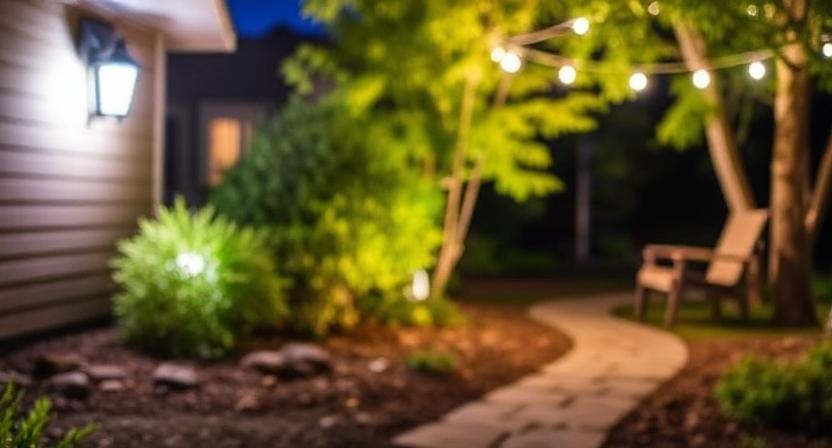
Let's literally shed some light on safety at night. When it comes to keeping unwelcome guests away after dark, good lighting might be one of your best allies. Motion-activated lights are great because they catch everyone off guard, including raccoons that are trying to steal chickens.
I remember one night hearing weird noises outdoors and worrying that aliens (or even worse, a family of skunks) were coming to get me. I turned on my motion lights and saw nothing but scared animals running away like they had just been caught at an all-you-can-eat buffet.
Put these lights in smart places around doors and windows, and don't forget the dark areas around barns or sheds where trouble can be hiding!
Solar-powered lights also save energy and make sure that anyone who gets close will see more than just an eerie glow; they'll be hit with a lot of light!
The New Way to Use Alarm Systems
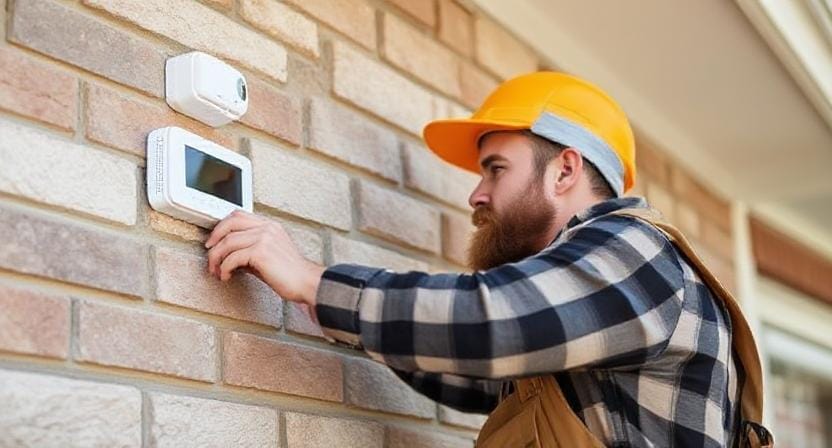
Alarm systems are easier to get these days, even for people like us who live off the grid and like things simple but effective!
Most traditional alarms need electricity to work, which might be hard to get if you actually live off the grid. But there are a lot of battery-powered alarms on the market nowadays.
You should also think about getting wireless cameras. Many of these let you watch what's going on immediately from your phone, which is great for spotting anything that looks suspect before it becomes worse.
Plus, watching films of raccoons trying to climb fences but failing may be a lot of fun at night!
Of course, no system is perfect, but having visible deterrents makes would-be attackers think twice about breaking into your home instead of another one that is less protected down the street.
Making Connections In The Community
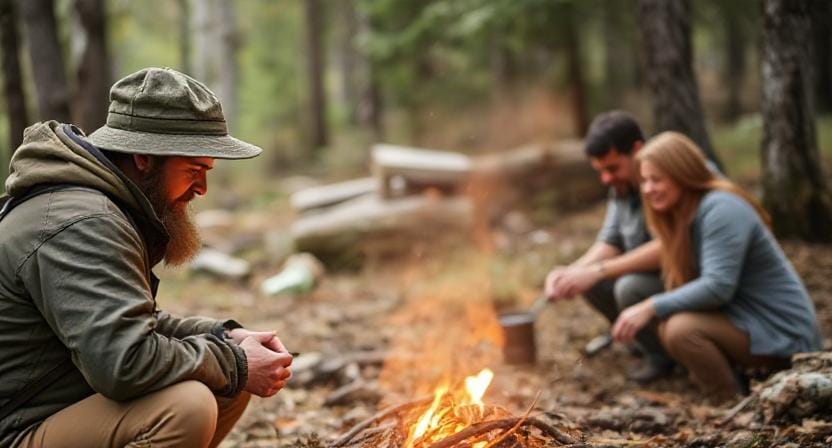
Making ties with others in your community is a terrific approach to make things safer. It turns out that neighbors actually help each other out!
If you have trustworthy individuals nearby, they will notice if anything appears off around your farm while you're busy taking care of your crops or chasing hens that have decided they want to be free today.
You never know what friendships can form from shared gardening advice or stories about how to grow pumpkins. So get involved in local clubs that are focused on rural living or farming.
When people in this community network stay in touch, not only do friendships deepen, but people also become more aware of one other's property.
Also, as I've learned, the best alarm system is sometimes just talking to your neighbors every day. After all, nothing says “we're watching” like saying hello every morning over coffee!
Be Ready for Emergencies
Lastly, and maybe most crucially, make provisions for emergencies that could happen, including floods or animal assaults (yes, even rogue squirrels!). Talk about these preparations with everyone who lives on the property so that everyone knows what to do if something goes wrong.
Include drills in family activities—who knew practice could be so much fun? You might laugh so hard during fire drills that you can't stop, and you might even assume that smoke signals imply dinner is ready instead!
Setting up clear rules for how family members should talk to each other about emergencies ahead of time makes guarantee that no one panics when things go wrong. This keeps both people and animals safe in any crisis that comes up next!
Frequently Asked Questions
Why are motion-sensor lights useful on a homestead?
They activate automatically when movement is detected, startling intruders and improving nighttime visibility around key entry zones.
Do thorny shrubs really help with security?
Yes. Dense, prickly shrubs make natural barriers that discourage climbing or crossing along property edges and window areas.
Why keep vegetation trimmed near windows?
Overgrowth creates hiding spots for intruders. Clearing sightlines increases visibility for humans and reduces concealment opportunities.
How do signs and fencing deter trespassers?
Signs and clear boundaries signal private property status and make it obvious that unauthorized access will not go unnoticed.
Why secure outbuildings and gates?
Garages, barns, coops, and storage sheds often contain valuable tools or animals, making them targets if left unlocked.
Are cameras worthwhile for rural security?
Even basic cameras help identify suspicious activity and serve as a visual deterrent, especially when placed near common approach paths.
Is staying active on the property really part of security?
Yes. Regular presence creates the impression of constant oversight, discouraging opportunistic intruders who prefer low-attention targets.
Suggested Resources:
Home Security Tips
https://www.homesecuritystore.com/blog/home-security-tips/
Fencing Options for Homesteaders
https://www.thehomesteadinghippy.com/fencing-options-homesteaders/
Community Safety Networks
https://www.nas.org/community-safety-networks

Kevin Collier is a seasoned survivalist and expert in prepping and homesteading, contributing to WiseSurvive.com. With a deep-rooted passion for self-sufficiency and outdoor survival skills, Kevin shares practical advice, strategies, and resources to help individuals prepare for any challenge. His informative articles cover a range of topics, from essential survival techniques to sustainable living practices, empowering readers to thrive in any situation. Whether you're a novice or a seasoned prepper, Kevin's insights will inspire you to take charge of your readiness and build resilience for the future.



